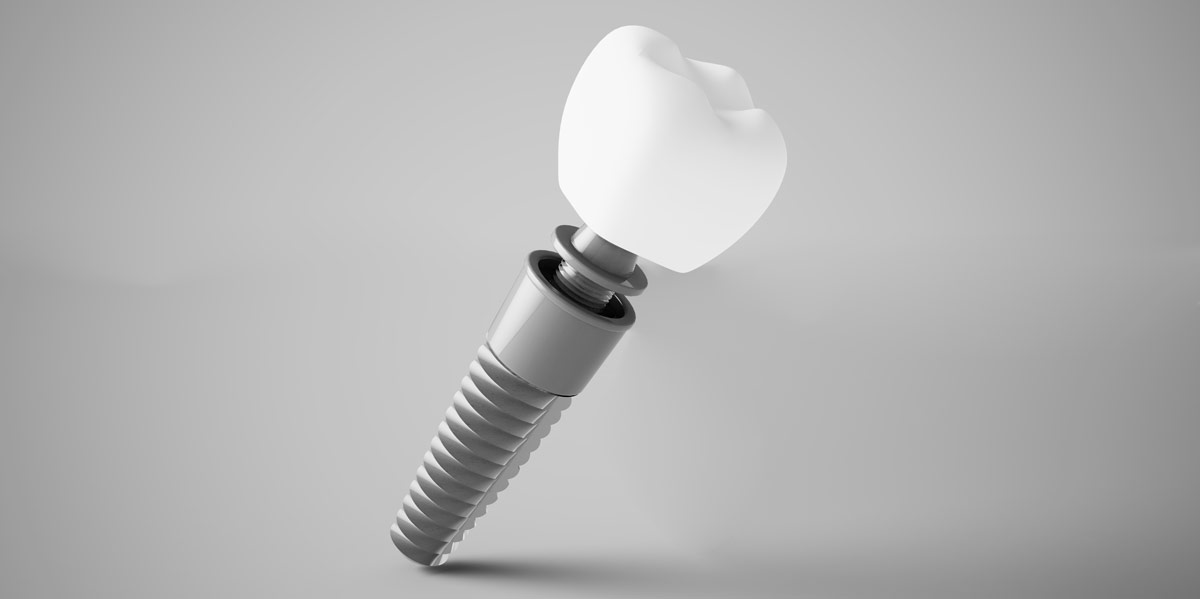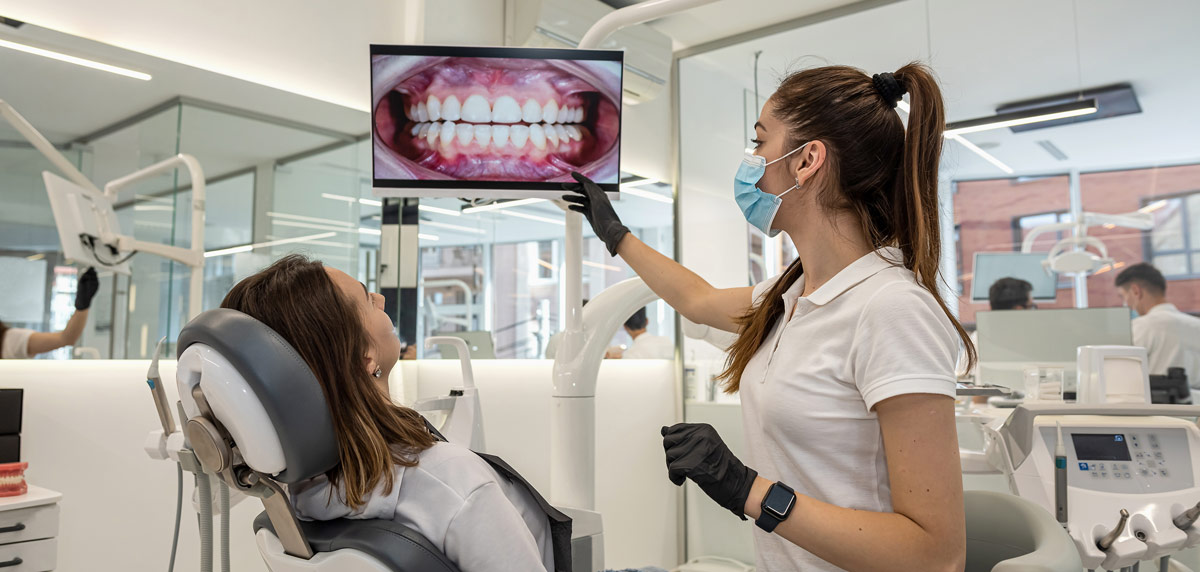Dental implants are one of the most effective and long-lasting ways to restore missing teeth. But for many patients, the dental implants cost can seem confusing or even overwhelming.
From initial consultations and scans to surgery, aftercare, and potential additional procedures, there’s more to the price than just the implant itself.
Whether you need one dental implant or full mouth restoration, it’s important to understand exactly what you’re paying for.
Let’s now break down the factors that influence the cost of dental implant treatment in the UK, explain what’s typically included, and help you identify hidden costs so you can make informed decisions and spread the cost in a way that suits your budget.
What are dental implants?
A dental implant is a titanium post that is surgically inserted into the jawbone to act as a root for a replacement tooth. Once healed, an abutment and custom-made crown are attached to restore function and aesthetics. Implants can replace a single tooth, multiple teeth or even an entire arch with full mouth implants.
Dental implants are designed to integrate with the jawbone, making them a secure, stable and long-lasting solution compared to treatment options like removable dentures or bridges. They help preserve bone structure, prevent further tooth loss, and provide the closest thing to natural teeth in terms of look, feel and function.
Why people choose implants over alternatives
Unlike dentures, which can slip or cause discomfort, implants are fixed in place. They allow you to eat, speak, and smile with confidence. For patients with one missing tooth or multiple teeth gaps, dental implants offer a permanent solution that supports surrounding healthy teeth and overall dental health.
Dental implants procedure
The dental implants procedure typically takes place over several stages. The length of the process can vary depending on your unique case, the number of implants, and whether additional procedures like bone grafts or sinus lifts are required.
Stage 1: initial consultation and planning
The first step involves a thorough consultation with your implant dentist, where your dental health will be assessed. This includes checking for any bone loss, gum health, and whether you’re suitable for dental implants. Your dentist will also take x-rays or 3D scans to evaluate your jawbone and create a tailored treatment plan.
Stage 2: implant placement surgery
Once the treatment plan is finalised, the implant placement surgery will be scheduled. During this procedure, the dental implant will be surgically placed into your jawbone. The dentist may use local anaesthesia, and sedation is available if needed for more complex cases. The surgery can take between one to two hours, depending on the number of implants.
Stage 3: healing and osseointegration
After the implants are placed, they require time to integrate with the jawbone – a process known as osseointegration. This typically takes between 3 to 6 months. During this healing phase, the bone grows around the titanium post, creating a strong and permanent bond.
Stage 4: abutment and crown placement
Once the implants have fully integrated with the bone, a small connector called an abutment is attached to the implant. After this, a custom-made crown (false tooth) is placed on top of the abutment, completing the restoration. The final result will look and feel like natural teeth.
The basic cost breakdown
Typical price range in the UK
The dental implant treatment cost in the UK varies, but a single implant can cost between £1,500 and £3,000. This price typically covers the implant post, abutment, and crown. However, more complex cases involving multiple implants, bone grafts or full mouth implants can exceed £10,000.
If you need to replace multiple teeth, you won’t necessarily require one implant per tooth. For example, four implants may support a full arch of teeth, reducing the number of implants required. Your dentist will determine how many implants you need as part of your treatment plan.
What’s usually included in the quoted cost
A typical quote for dental implant treatment often includes the following:
- Clinical assessment and consultation
- Digital X-rays or CT scans
- Implant placement surgery
- The abutment and custom crown (false tooth)
- Follow-up appointments and aftercare
It’s essential to confirm what’s included upfront to avoid unexpected or hidden costs later.
Factors that influence the cost
Type and number of implants needed
The number of implants required directly affects the total cost. A single dental implant will naturally cost less than a treatment plan for patients needing multiple implants or full mouth restoration. However, you don’t need one implant for every missing tooth – strategic placement can allow two implants to support several teeth.
The implant type also plays a role. Some patients need traditional single implants, while others may be suitable for mini implants or all-on-four systems, each with different pricing and outcomes.
The role of diagnostic scans and consultations
Before starting any implant treatment, you’ll need a full clinical assessment, which may include a free consultation or a detailed paid appointment. Diagnostic tools like digital X-rays and 3D CT scans are used to evaluate bone density, gum health and implant suitability.
These scans are crucial for accurate treatment planning and safe implant placement. Some clinics include them in the overall price, while others list them as separate costs.
Hidden or additional costs
Bone grafting and sinus lifts
For patients with bone loss, additional procedures like bone grafts or sinus lifts may be required to create a stable foundation for the implant. These procedures add to the total dental implant treatment cost and may increase treatment time.
Bone grafting is common in cases where teeth have been missing for a long time, leading to bone deterioration in the jaw. A sinus lift may be necessary for upper jaw implants where the bone is too close to the sinus cavity.
Anaesthesia options and sedation
Basic local anaesthesia is typically included in the cost, but patients with dental anxiety or those undergoing multiple implants may opt for conscious sedation or general anaesthesia. These sedation options can come with additional costs, especially if an anaesthetist is required.
Always ask your provider whether sedation is included or if it’s an optional add-on.
Quality of materials and technology
Implant brands and materials used
The materials used in dental implants vary in quality and price. Premium brands often offer stronger integration with bone, longer warranties and better long-term results. While cheaper implants may seem appealing, they can lead to complications or replacement costs down the line.
The crown (false tooth) can also be made from different materials, such as porcelain fused to metal, full ceramic or zirconia – all of which influence the overall price.
Clinic standards and technological investment
Clinics that use advanced technology – such as guided implant surgery, 3D printing, or intraoral scanners – may charge more, but these tools can significantly improve accuracy and comfort. Higher standards of hygiene, training, and aftercare also contribute to pricing but offer peace of mind and better outcomes.
Expertise and location of the clinic
Experience of the implant dentist
The more experienced the implant dentist, the more likely they are to handle complex cases and achieve successful results. Skilled implant dentists may charge more, but their expertise is especially valuable in cases involving multiple implants, bone grafts or full mouth restorations.
Choosing a dentist based on qualifications, case studies, and patient reviews can help ensure a smooth and successful dental implant procedure.
How location affects pricing across the UK
Implants cost more in London and other major cities due to higher overheads and demand. Clinics in smaller towns or rural areas may offer the same quality treatment at a lower price. If you’re flexible, it could be worth travelling for a better deal – just make sure you factor in travel and follow-up appointments.
Long-term value and financing options
Comparing cost vs. longevity of implants
While the upfront dental implants cost is higher than composite bonding, dentures or bridges, implants are a long-term investment. With proper care, they can last 10 to 25 years or more, potentially making them more cost-effective over time.
They also support better oral health by preventing bone loss and helping maintain the position of surrounding teeth, which can reduce the need for future treatment.
NHS availability and private payment plans
Dental implants are not routinely available on the NHS unless there is a clear medical need. Most patients opt for private treatment, where many clinics offer dental finance options to help spread the cost.
Flexible payment plans can allow you to pay monthly over 6 to 60 months. Make sure to ask for a representative example and check if the clinic is authorised and regulated to offer finance (they may not be a lender but work with one). Some clinics also have a minimum spend requirement for finance options.
Medicred: helping you pay the dental implants cost flexibly
At Medicred, we understand that the cost of dental implants can be a significant concern. That’s why we offer flexible payment plans designed to make dental care more accessible.
With Medicred, you can spread the cost of your dental implant treatment, making it easier to manage your finances without compromising on your dental health.
Our simple application process, quick approval, transparent pricing, and interest-free loans allow you to receive the best dental care when you need it most. Whether you’re replacing a single tooth or need multiple implants for multiple lost teeth, Medicred helps ensure that financial worries won’t prevent you from achieving a beautiful, confident smile.




